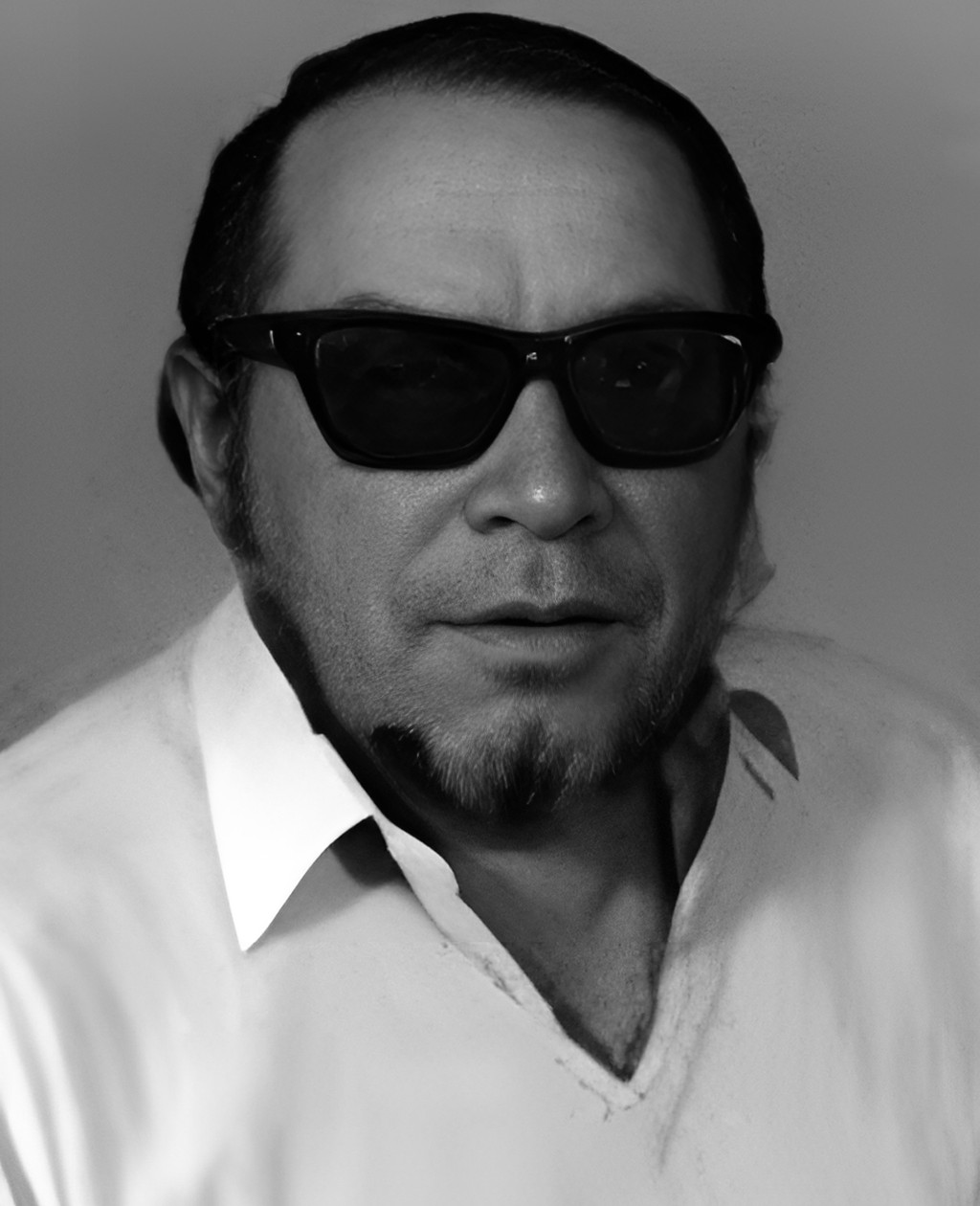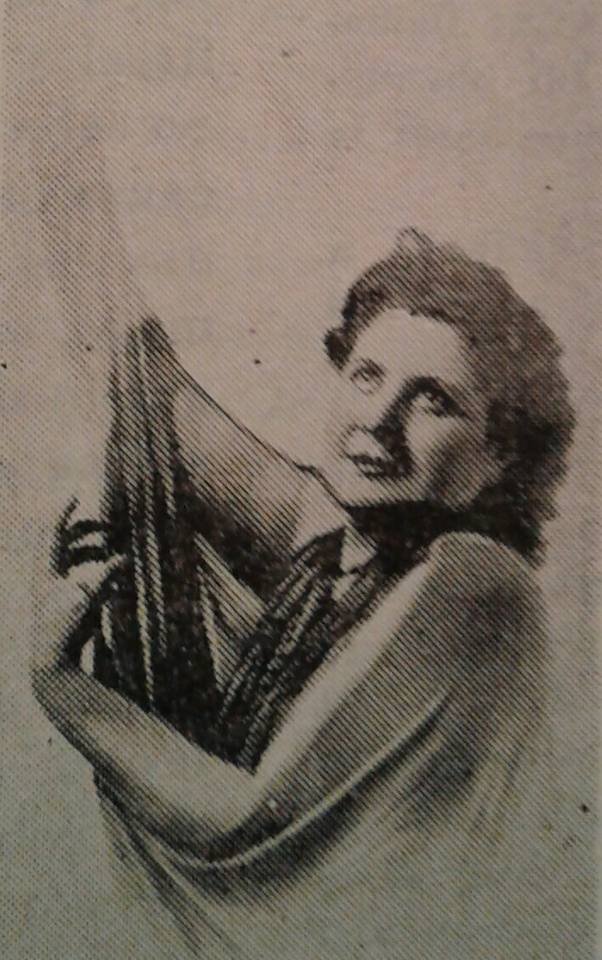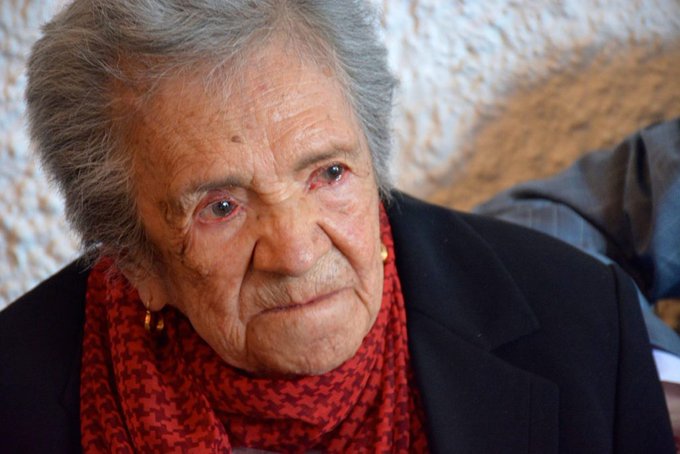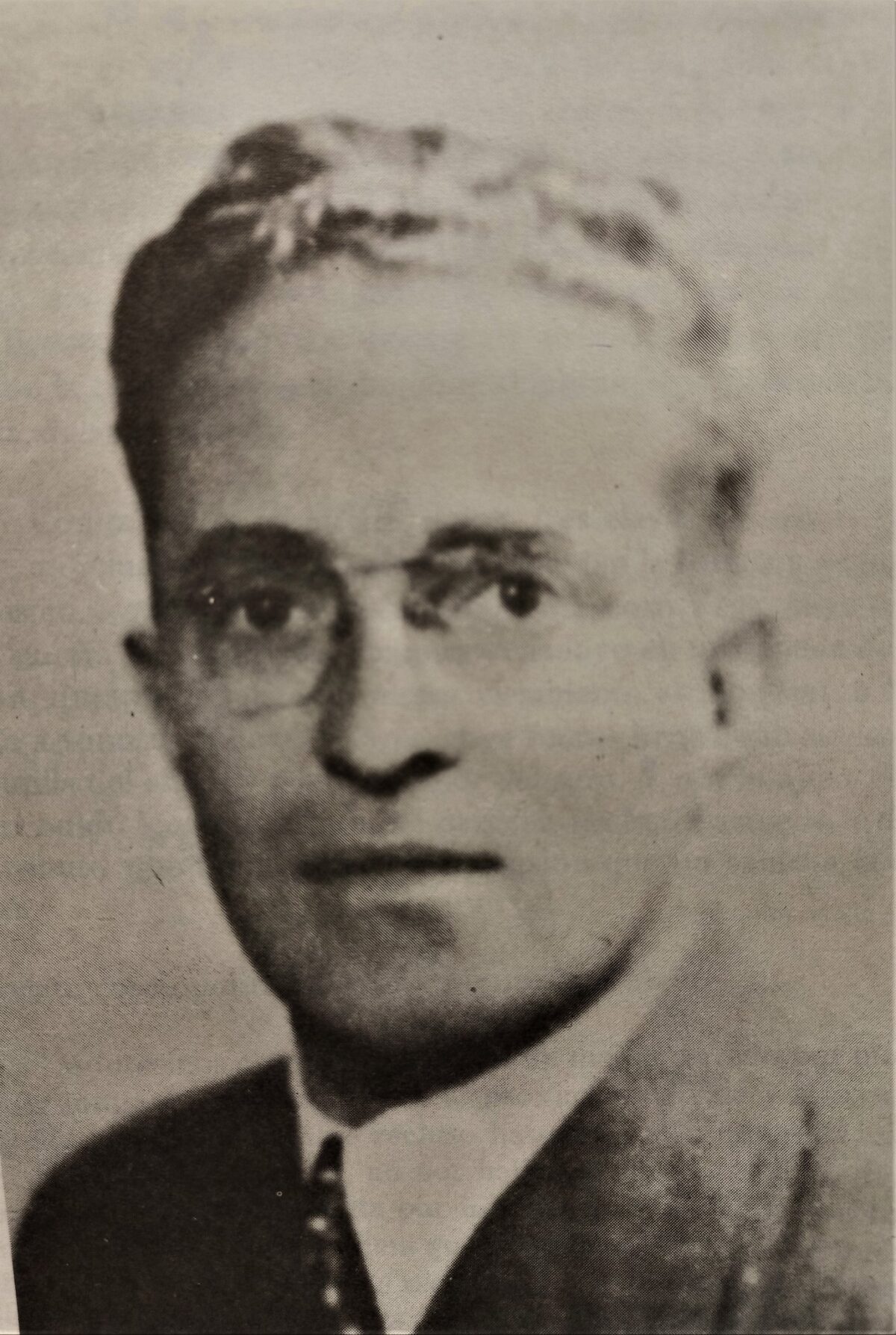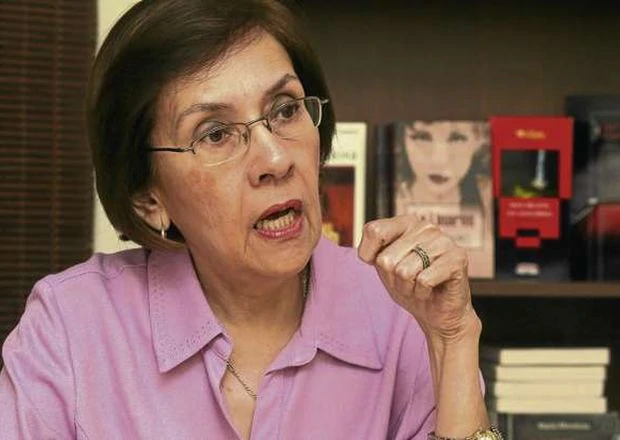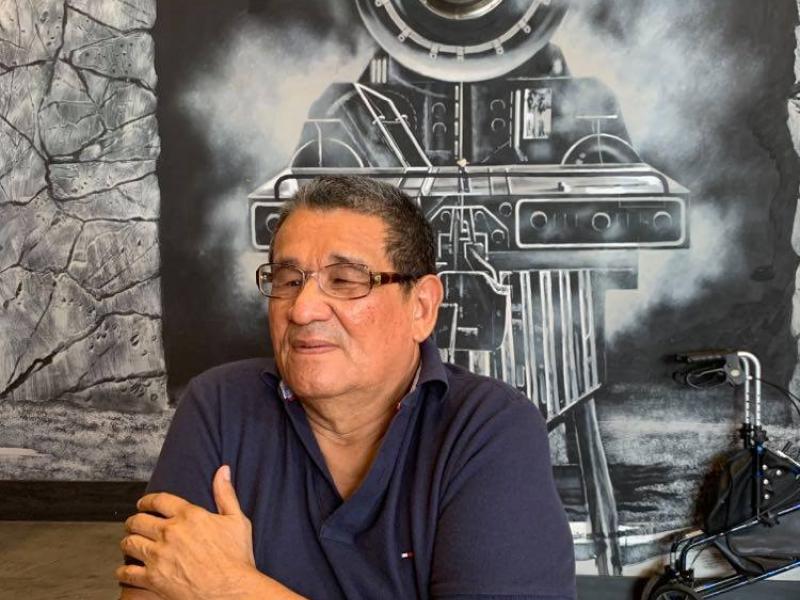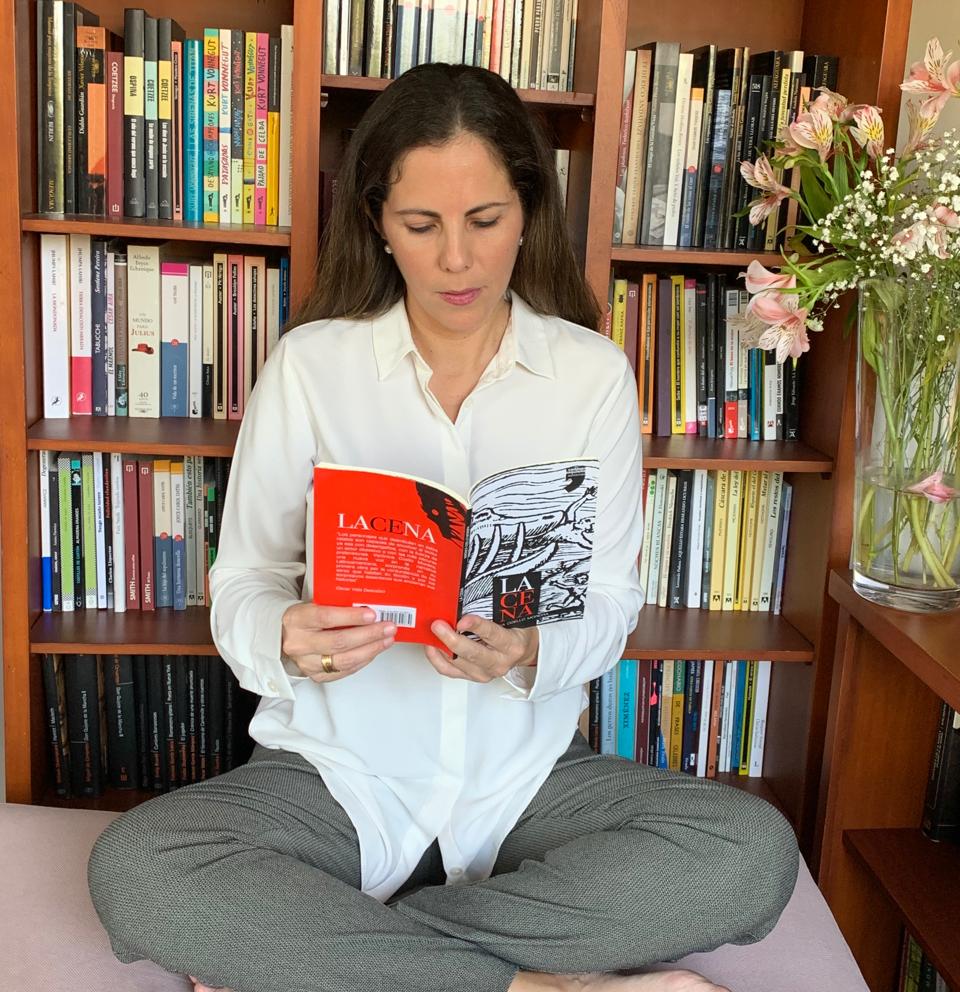Walter Franco Serrano (Quito, 1932 – 2021) was a poet, novelist, and theater teacher. From 1954 to 1957, he cofounded the Quito Chamber Theater with professor Carlos Lowenberg, the Independent Theater with Francisco Tobar, and the puppet theater, casa de la Fantasia [Fantasy House]. He was a member of the Umbral Group, a literary group formed in Quito in 1952 by notable Ecuadorian writers of the time. He joined the Society of Friends of the Theater in 1955, where he taught oral expression. In 1967, he was Ecuador’s delegate to the First Latin America Theater Congress in Mexico. He lectured at the House of Ecuadorian Culture’s Theater Seminar between 1975-1976. His poetry collections include: “El instante innumerable” (1957), “El mar forastero” (1959), “Años ecuatoriales,” and “Cronica colombiana.” His novel “Un pueblo en los Andes” [A Town in the Andes] was a finalist for the 1971 Planeta award. His short story collections include: “Cinco mil dolares” and “Collazo 24.”
Continue reading “Walter Franco Serrano”Author: richard
Rubén Astudillo y Astudillo
Rubén Astudillo y Astudillo (El Valle, Cuenca, 1938 – January 16, 2003) was a poet, journalist, and diplomat. He began his writing career in Cuenca, where he created the Amanecer literary group and produced a magazine by the same name. In 1957, he published his first collection of poems, “Del crepúsculo,” followed by “Trébol sonámbulo” (1958), and “Desterrados” (1960). He then established the literary journal Syrma. In 1963, he published his best known poetry collection, “Canción de lobos,” with which he pioneered what he termed as poesía testimonialista [testimonialist poetry] in Ecuador. He served as a diplomat at the Ecuadorian embassies in Israel, Cyprus, Venezuela, Vietnam, and China.
Continue reading “Rubén Astudillo y Astudillo”Morayma Ofir Carvajal
Morayma Ofir Carvajal (Guaranda, Bolívar, January 28, 1915 – Chimborazo, February 25, 1951) was an Ecuadorian poet and educator. She worked as a teacher and rector at various schools in her hometown of Guaranda and later in Riobamba. In 1949, she was one of the founders of the Riobamba branch of the House of Ecuadorian Culture. Morayma Ofir was married to José Reyes for several years, until they were killed on February 25, 1951 by a bomb in their home in the city of Riobamba.
Continue reading “Morayma Ofir Carvajal”Inés Márquez Moreno
Inés Márquez Moreno (Cuenca, June 7, 1914 – August 18, 2017) was an Ecuadorian poet. Her first poetry collection, “Denuncia del sueño,” was published by the House of Ecuadorian Culture in Azuay in 1963. Her style is characterized by great simplicity and evocative force, and her subjects include love, land, friendship, and family. In 1994, the House of Ecuadorian Culture published her second collection of poems, “Camino de mediodía.” She was awarded the Fray Vicente Solano Medal by the city of Cuenca, which is given to the city’s most distinguished authors. She was a member of the Ibero-American Academy of Poetry in Cuenca since its inception. She continued to write into her 90s and died at the age of 101.
Continue reading “Inés Márquez Moreno”The Decapitated Generation
The Generación Decapitada (Spanish for “Decapitated Generation” or “Beheaded Generation”) refers to a group of early 20th-century Ecuadorian poets who are remembered for their significant contributions to Ecuadorian modernismo and their tragically short lives, marked by premature death, typically by suicide. The name “Decapitated Generation” alludes to their untimely deaths, which cut short their literary careers. The core members of this group include Medardo Ángel Silva, Ernesto Noboa y Caamaño, Arturo Borja, and Humberto Fierro. Despite never formally organizing as a literary group, their shared themes, stylistic influences, and similar fates have led literary critics to recognize them as a distinctive and influential circle in Ecuadorian poetry.
Continue reading “The Decapitated Generation”Temístocles José Araúz Rojas
Dr. Temístocles José Araúz Rojas (Machala, October 14, 1871 – ?) was an Ecuadorian doctor, writer, and politician. His best known work is the hymn of El Oro province. He wrote political articles for several newspapers in the country, including El Telégrafo, Diario de Avisos, and El Tiempo. He served as governor of El Oro province and then senator for 9 years.
Continue reading “Temístocles José Araúz Rojas”César Salcedo Parrales
César Salcedo Parrales, pseudonym Galo Salcedo (Machala, Ecuador, August 22, 1938 – August 16, 2011) was an Ecuadorian writer, painter, educator, journalist and historian. He authored approximately 13 books and several articles for various publications. He primarily wrote historical works about Machala and the province of El Oro. He was a member of the Association of Latin American and Caribbean Historians, the Association of Historians of Ecuador, and the House of Ecuadorian Culture’s history section in El Oro. The provincial historical archive bears his name.
Continue reading “César Salcedo Parrales”Arturo Montesinos Malo
Arturo Montesinos Malo (Cuenca, August 31, 1913 – May 23, 2009) was an Ecuadorian novelist, professor, and translator who lived in the United States for many years where he worked as a translator at the United Nations in New York. In 1959, he received the “José de la Cuadra” Award for his short story collection “Arcilla indócil,” which is considered by many to be his best work. Some of his Spanish-to-English translations of contemporary writers’ short stories and poems appeared in Letras del Ecuador.
Continue reading “Arturo Montesinos Malo”Walter Bellolio
Walter Bellolio (Guayaquil, 1930 – 1974) was a well-regarded Ecuadorian short story writer. During his lifetime, he published a number of short story collections, and his work has appeared in several anthologies. He traveled to Spain in 1974 to publish the book that would make him famous, “Crónica del hombre que aprendió a llorar,” [Story of the Man Who Learned to Cry] but was killed by a car that struck him shortly after arriving. The House of Ecuadorian Culture published the book posthumously in 1975. He is the maternal grandfather of the writer Daniela Alcívar Bellolio.
Continue reading “Walter Bellolio”A la costa Movie
“A la costa” is a 1994 movie directed by Carl West based on the novel by Luis A. Martínez.
Continue reading “A la costa Movie”7 Lunas, 7 Serpientes Movie
7 Lunas, 7 Serpientes is a 1996 movie based on the 1970 novel “Siete lunas y siete serpientes” by Demetrio Aguilera Malta.
Continue reading “7 Lunas, 7 Serpientes Movie”El chulla Romero y Flores Movie (1995 Film)
“El chulla Romero y Flores,” a 1958 novel by Jorge Icaza, was made into a TV movie for Ecuavisa in 1995. Carl West directed the film, which was shot in Ecuador. The story is set in 1950s Ecuador and follows the activities of the chulla Luis Alfonso Romero y Flores, including his job as a bureaucrat, bohemian nights spent with friends, and his romance with Rosario Santacruz.
Continue reading “El chulla Romero y Flores Movie (1995 Film)”Cecilia Ansaldo
Cecilia Ansaldo Briones (Guayaquil, 1949) is an Ecuadorian professor, essayist, and literary critic. She is currently a professor at both Casa Grande University and the Catholic University of Santiago de Guayaquil in Ecuador. In 2015, she became a member of the Ecuadorian Language Academy, a correspondent organization of the Royal Spanish Academy. She is a member of the Mujeres del Ático group and a founding member of the Open Book Station Cultural Center. She writes an opinion column for the newspaper El Universo. She has chaired the Guayaquil International Book Fair’s content committee since 2015.
Continue reading “Cecilia Ansaldo”Dalton Osorno
Dalton Osorno (Jipijapa, 1958) is an Ecuadorian writer, poet, literary critic, and retired professor. His short novel, “Sonata para jaibas y cangrejos,” won the 2020 La Linares award, which he shared that year with Hans Behr Martinez, who was recognized for his own short novel. Orsono has published a collection of short stories and several collections of poetry. His book of poems, “No hay peor calamidad, desfachatez, infatuamiento que un poeta enamorado,” was awarded the Unique Prize at the VII National Literature Contest in Guayaquil. He has lived in Guayaquil since 1970.
Continue reading “Dalton Osorno”Verónica Coello Moreira
Verónica Coello Moreira (Guayaquil, 1975) is an Ecuadorian journalist, writer, and university and high school professor. She is the author of the novel “Memoria de Papel” (2021), which won the Miguel Riofro National Literary Award, as well as the short story collection “La cena” (2017). She is a columnist for the newspapers El Universo (Ecuador) and El Peruano (Peru), as well as the co-host of the political talk show “Al día.”
Continue reading “Verónica Coello Moreira”
